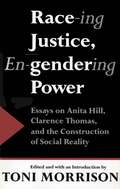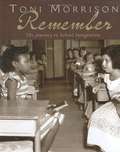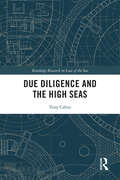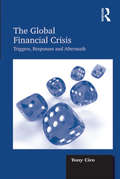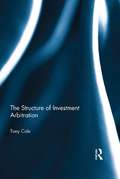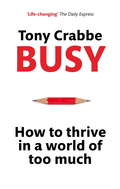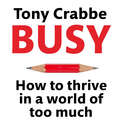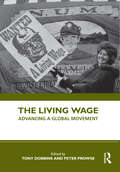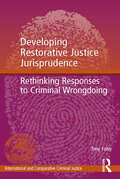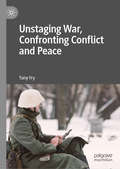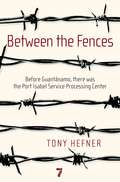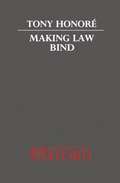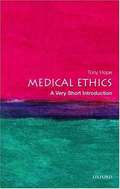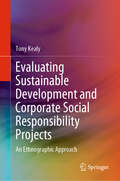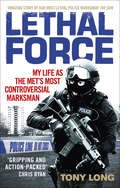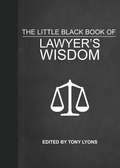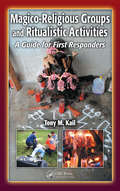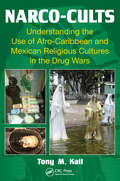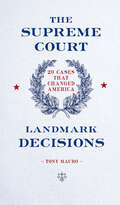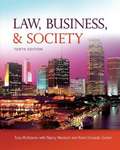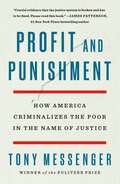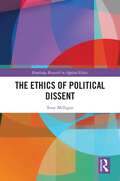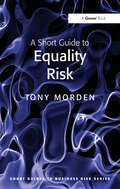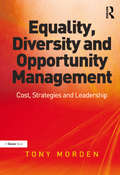- Table View
- List View
Race-ing Justice, En-gendering Power: Essays on Anita Hill, Clarence Thomas, and the Construction Of Social Reality
by Toni MorrisonIt was perhaps the most wretchedly aspersive race and gender scandal of recent times: the dramatic testimony of Anita Hill at the Senate hearings on the confirmation of Clarence Thomas as Supreme Court Justice. Yet even as the televised proceedings shocked and galvanized viewers not only in this country but the world over, they cast a long shadow on essential issues that define America. <p><p>In Race-ing Justice, En-gendering Power, Nobel Prize winner Toni Morrison contributes an introduction and brings together eighteen provocative essays, all but one written especially for this book, by prominent and distinguished academicians—Black and white, male and female. These writings powerfully elucidate not only the racial and sexual but also the historical, political, cultural, legal, psychological, and linguistic aspects of a signal and revelatory moment in American history.
Remember: The Journey to School Integration
by Toni MorrisonToni Morrison has collected a treasure chest of archival photographs that depict the historical events surrounding school desegregation. These unforgettable images serve as the inspiration for Ms. Morrison's text, a fictional account of the dialogue and emotions of the children who lived during the era of separate but equal schooling. Remember is a unique pictorial and narrative journey that introduces children to a watershed period in American history and its relevance to us today. Remember will be published on the 50th anniversary of the groundbreaking Brown v. Board of Education Supreme Court decision ending legal school segregation, handed down on May 17, 1954.<P><P>Winner of the Coretta Scott King Medal
Due Diligence and the High Seas (Routledge Research on the Law of the Sea)
by Tony CabusThere has been a rapid growth of interest in due diligence, especially in the fields of environmental law and the law of the sea. Yet, confusion seems to surround this notion. Is due diligence a principle, a rule, a standard or something else? This book firstly explores thoroughly the concept of due diligence, its purpose and its mechanisms in order to propose a comprehensive theory of due diligence in harmony with the general law of State responsibility. In the meantime, this book also explores the usefulness of due diligence to address modern challenges afflicting the high seas. Indeed, while the application of due diligence in transboundary contexts is well illustrated by jurisprudence, its applicability in areas beyond national jurisdiction remains unclear. Yet, a proper usage of this concept may be crucial for the protection of the high seas, as it allows for the intervention of international standards in this fragile area. Hopefully, the concept of due diligence can help compensate the insufficiencies of the United Nations Convention on the Law of the Sea concerning the high seas. Examining in detail the theory of due diligence, this book will interest international lawyers concerned with this notion. It also offers a new perspective on the UNCLOS through the prism of due diligence and will interest lawyers dealing with the protection of the marine environment and fisheries.
The Global Financial Crisis: Triggers, Responses and Aftermath
by Tony CiroThis book offers commentary and analysis on the catastrophic events which have recently confronted the international economy in the modern era and contrasts the current situation with other financial crises. It includes case studies on Lehman Brothers in the US, Babcock & Brown in Australia, and Northern Rock in the UK. Asking many pertinent questions about the causes of the crisis and its effects, the book explores fundamental themes such as: asset bubbles and speculation in the financial and non-financial markets, systemic risks and the role of regulation, and regulators. It also reviews the response of international institutions such as the IMF, the World Bank, the US Federal Reserve, the EU Central Bank and the G20. The book assesses the triggers of the crisis and evaluates rescue packages and policy responses as well as suggesting reform of regulatory and supervisory frameworks to maintain banking and modern financial systems in the future.
The Structure of Investment Arbitration
by Tony ColeAlthough a State’s treatment of foreign investors has long been regulated by international law, it is only recently that international investment law has emerged as an independent discipline in its own right. In recent decades the practical success of investment arbitration has allowed international investment law to develop both its own cadre of academic and professional specialists and its own legal doctrines. This book analyses the structure of international investment law, as it has developed through the practice of investment arbitration in order to see how a variety of international investment law doctrines should be understood and applied. The book demonstrates how a structural analysis can shed light on several major controversies within investment law and also examines what an "investment" actually is. The book offers an original interpretative approach to the resolution of problems in international investment law, and so is one of the few books within the field to attempt to give investment law a solid theoretical basis. It also focuses on only a select number of problems, rather than attempting to deliver the universal coverage currently popular for investment law books. As a result, those issues that are addressed get a detailed discussion rarely available in competing texts.
Busy: How to Thrive in A World of Too Much
by Tony Crabbe'Life-changing' Daily ExpressIf you want to take control of your career - and your life - make sure you're not too busy to read this book.Today's world is one of too much: too much work to do, too much communication, too much competition, too much uncertainty and too much information. We are striving to keep up, but inevitably we're falling behind, leaving us with a nagging sense of failure that is hard to shake off. In Busy, Tony Crabbe debunks the myth that satisfaction at work comes from getting everything done.Instead, he demonstrates that what will enable you to thrive is regaining a sense of mastery over your life, focusing on making an impact, engaging with loved ones and creating the momentum necessary to make changes.'You'll want to ban "busy" from your vocabulary after reading this delightful takedown of busyness as an excuse . . . a very smart, fun and enlightening read' Success Magazine
Busy: How to Thrive in A World of Too Much
by Tony CrabbeIt's difficult to ask anybody 'How are you?' without hearing the word 'busy' somewhere in their response. We feel overwhelmed by busyness because of the demands on our time: our inbox and our to-do list are bulging, a huge amount of people expect things from us and our organisations are trying to do more with fewer people. But it doesn't have to be that way. In reality, busyness isn't essential. Yes, there is a lot to do, but believing you're always busy because you have so much to do is both false and unhelpful. Busyness is a normal response to a world of too much, but it isn't the only response.In Busy Tony Crabbe draws on solid psychological research to address one of the great problems of modern life: we're too busy. But it isn't a time-management book. Rather than providing advice for increasing productivity and efficiency, it sets out four key strategies (corresponding to sections of the book) for thriving despite of the overload of too much:1. Mastery - to move beyond busyness you need to regain a sense of mastery over your life. This section shows you how to build a sense of control back into your life, take responsibility for making choices and how to set boundaries to protect you from the flood of demands and information.2. Focus - in a world of too much, success is not about doing more at work but about making an impact. This section outlines three ways to move to a career strategy that doesn't rely on productivity alone.3. Engagement - busyness can cause you to disengage from the people, values and activities that are important to us. This section provides you with the three keys to re-engaging with your work and life.4. Momentum - part of the challenge to moving beyond busyness is that even if you agree you should make the change, you're too busy to find the time and energy to do anything about it. This section is dedicated to helping you make the change, creating the impetus, energy and clarity to move to a life less busy.
The Living Wage: Advancing a Global Movement
by Tony DobbinsAs wealth inequality skyrockets and trade union power declines, the living wage movement has become ever more urgent for public policymakers, academics, and – most importantly – those workers whose wages hover close to the breadline. A real living wage in any part of the world is rarely its minimum wage: it is the minimum income needed to cover living costs and participate fully in society. Most governments’ minimum wages are still falling short, meaning millions of workers struggle to cover their living costs. This book brings new, vital insights to the conversation from a carefully selected group of contributors at the forefront of this field. By juxtaposing advances across sectors and countries, and encompassing many different approaches and indeed definitions of the living wage, Dobbins and Prowse offer a rich tapestry of approaches that may inform public policy. By including the experiences and voices of those workers earning at, or near, the living wage alongside the opinions of leading experts in this field, this book is a pioneering contribution for public policymakers as well as students and academics of work and employment relations, public policy, organizational studies, social economics, and politics.
Developing Restorative Justice Jurisprudence: Rethinking Responses to Criminal Wrongdoing (International and Comparative Criminal Justice)
by Tony FoleyWhat are the requirements for a just response to criminal wrongdoing? Drawing on comparative and empirical analysis of existing models of global practice, this book offers an approach aimed at restricting the current limitations of criminal justice process and addressing the current deficiencies. Putting restoration squarely alongside other aims of justice responses, the author argues that only when restorative questions are taken into account can institutional responses be truly said to be just. Using the three primary jurisdictions of Australia, New Zealand and Canada, the book presents the leading examples of restorative justice practices incorporated in mainstream criminal justice systems from around the world. In conclusion, the work provides a fresh insight into how today’s criminal law might develop in order to bring restoration directly into the mix for tomorrow. This book will be of interest to undergraduates, postgraduate researchers and lecturers, as well as lawyers who work in the field of criminal law, criminologists, social scientists and philosophers interested in ideas of wrongdoing and criminal justice responses to criminal offending.
Unstaging War, Confronting Conflict and Peace
by Tony FryThis book presents the concept of ‘unstaging’ war as a strategic response to the failure of the discourse and institutions of peace. This failure is explained by exploring the changing character of conflict in current and emergent global circumstances, such as asymmetrical conflicts, insurgencies, and terrorism. Fry argues that this pluralisation of war has broken the binary relation between war and peace: conflict is no longer self-evident, and consequentially the changes in the conditions, nature, systems, philosophies and technologies of war must be addressed. Through a deep understanding of contemporary war, Fry explains why peace fails as both idea and process, before presenting ‘Unstaging War’ as a concept and nascent practice that acknowledges conflict as structurally present, and so is not able to be dealt with by attempts to create peace. Against a backdrop of increasingly tense relations between global power blocs, the beginnings of a new nuclear arms race, and the ever-increasing human and environmental impacts of climate change, a more viable alternative to war is urgently needed. Unstaging War is not claimed as a solution, but rather as an exploration of critical problems and an opening into the means of engaging with them.
Between the Fences: Before Guantanamo, there was the Port Isabel Service Processing Center
by Tony HefnerSomething at the Texas detention facility is terribly wrong, and Tony Hefner knows it. But the guards are repeatedly instructed not to speak of anything they witness. In the Rio Grande Valley, one of the most poverty-stricken areas in the United States, good jobs are scarce and the detention facility pays the best wages for a hundred miles. The guards follow orders and keep quiet.For six years, Tony Hefner was a security guard at the Port Isabel Service Processing Center, one of the largest immigration detention centers in America, and witnessed alarming corruption and violations of basic human rights. Officers preyed upon the very people whom they are sworn to protect. On behalf of the 1,100 men, women, and children residing there on an average day, and the 1,500 new undocumented immigrants who pass through its walls every month, this is the story of the systematic sexual, physical, financial, and drug-related abuses of detainees by guards.
Making Law Bind: Essays Legal and Philosophical
by Tony HonoréExpressing views not easily placed within any one school of opinion, this collection of the papers of Tony Honoré reflects the author's contribution, as both critic and participant in debate, to the study of legal philosophy over the last twenty-five years. His wide-ranging essays cover such topics as motivation to conform to the law, norms and obligations, and rights and justice, and conclude with an essay supporting the use of law to encourage or reinforce morality.
Medical Ethics: A Very Short Introduction
by Tony HopeMedical ethics is an area that has particular interest for the general public as well as for the medical practitioner, and issues concerning medical ethics seem to be constantly in the headlines. This short and accessible introduction provides an invaluable tool with which to think about the ethical values that lie at the heart of medicine. Tony Hope deals with thorny moral issues, including euthanasia and the morality of killing. He also explores political questions, such as how we can make sure health care resources are distributed fairly. Each chapter in the book considers a different issue, for example, genetics, modern reproductive technologies, resource allocation, mental health, and medical research. Each section also discusses controversial questions such as: Who should have access to reproductive technology? Is it right to fund expensive drug treatment for individuals? Should treatment for mental illness be imposed on patients without their consent? Considering a wide range of questions of medical ethics, this Very Short Introduction will help to explain some of the confusing issues facing the field of medicine today.
Evaluating Sustainable Development and Corporate Social Responsibility Projects: An Ethnographic Approach
by Tony KealyThis book discusses sustainable development decision-making. Focusing on decisions to invest in wind turbine technology as part of a corporation’s CO2 emission reduction strategy, it presents a new evaluation framework, based on the triple bottom line framework widely used by businesses to communicate their adherence to corporate social responsibility. This new framework allows the evaluation of strategic corporate decisions to invest in wind turbines to mitigate global warming in the context of a corporation’s social responsibility, and includes an objective measurement stage to add rigor to the evaluation process. The book describes the use of measured data from wind turbine projects to both develop and validate the methodology, and also identifies key enablers and barriers as businesses attempt to successfully integrate corporate social responsibility into their overall business strategy. Given its scope, the book appeals to postgraduate students, researchers, and business professionals interested in the environmental impact of corporations. Featuring case studies from Ireland, it is particularly relevant to audiences within Europe.
Lethal Force: My Life As the Met’s Most Controversial Marksman
by Tony LongTony Long was the best ‘shot’ the Met ever had. Under the codename ‘Echo 7’, he was ‘licenced to kill’ bringing down scores of targets, sometimes with deadly force. In 1985 he opened fire on a suspect to save a four-year-old girl whose mother had been stabbed to death by her assailant. Two years later he was involved in another high profile shooting while confronting three armed criminals. On both occasions Tony was commended by the Metropolitan Police Commissioner. But in the spring of 2005, coming face to face with suspected drug dealer and armed robber Azelle Rodney, a volley of point blank shots would bring his career crashing to an end, tarnish his reputation and leave him fighting a murder charge and possible life sentence. From life or death cases and botched operations to political fallouts, this book charts the controversial career from rookie seventies beat cop to Long's command of SO19 – the Met’s most elite specialist firearms unit. Long’s personal testimony and professional insight raises serious issues about the duties, pressures and responsibilities that fall on the shoulders of those we task to risk their lives, and take the lives of others, in our name.
The Little Black Book of Lawyer's Wisdom
by Tony LyonsA handy guide to legal wisdom past and present.To be a lawyer or a politician or a judge, one must dedicate their lives to serving the public good. For anyone considering a career in law or anyone interested in philosophy, politics, and/or government, herein you will find an entertaining and educational collection of legal wisdom from some of history’s greatest thinkers. The road to justice is not always easy. It is fraught with conflict, scandal, adversity, and sleepless nights. It is a noble and necessary pursuit as society continues to progress and seek equality for all. Words from renowned lawyers, judges, authors, politicians, philosophers, and preachers make up this diverse assortment of over two hundred memorable, bite-sized quotations about justice, philosophy, crime, the life of a lawyer, landmark cases, and more!Included are such quotations as:"Let all laws by clear, uniform, and precise; to interpret laws is almost always to corrupt them.” -Voltaire"If in your own judgment you cannot be an honest lawyer, resolve to be honest without being a lawyer.” -President Abraham Lincoln"The first duty of society is justice.” -Alexander Hamilton"A system of justice is the richer for diversity of background and experience.” -U.S. Supreme Court Justice Ruth Bader Ginsburg
Magico-Religious Groups and Ritualistic Activities: A Guide for First Responders
by Tony M. KailMore than just a litany of artifacts, rituals, and symbols, this valuable book provides a cultural bridge for emergency responders. It places the information in a relevant context and offers crucial keys to communication, assessment, and treatment in culturally sensitive situations. Beginning with the importance of trans-cultural communication, the book separates fact from fantasy regarding Neo-Paganism, Santeria, Bantu religion (Palo Mayombe), Voodoo, and Curanderismo. Promoting functional cultural competency, this book provides the tools to properly assess situations, open lines of communication, protect cultural diversity, and provide effective emergency treatment.
Narco-Cults: Understanding the Use of Afro-Caribbean and Mexican Religious Cultures in the Drug Wars
by Tony M. KailThose who know about how spirituality plays into the world of drug smuggling have likely heard of Santa Muerte, Jesus Malverde, and Santer but the details of the more obscure African religions and Latin American folk saints and cults often remain a mystery. While the vast majority of these religions are practiced by law-abiding citizens with no co
The Supreme Court: 20 Cases that Changed America
by Tony MauroA concise, informative guide to the twenty most momentous Court rulings in American history, including excerpts from the written decisions and dissents. The legislative branch of government creates laws, and the executive branch signs and enforces them. But how does America make sure these laws don’t run afoul of the Constitution? That responsibility lies with the final arbiters: the nine justices of the Supreme Court. Every year, thousands of contentious cases are submitted to the court; only about eighty of them are heard. Out of those cases, many are remembered only by the people directly involved. But over the years, many cases heard by the Supreme Court have gone on to affect the lives of many, or even all, American citizens. In The Supreme Court: Landmark Decisions, veteran court reporter Tony Mauro picks out the twenty most momentous Supreme Court cases in United States history. In his reviews, from Marbury v. Madison, the 1803 case that first affirmed the Supreme Court’s status as the country’s final legal arbiter, to Obergefell v. Hodges, the 2015 case that legalized same-sex marriage, Mauro summarizes each case and includes cogent summaries of the justices’ decisions, as well as notable dissents. From a journalist noted by the New York Times for “explaining complex legal issues to laymen without sacrificing accuracy and subtlety,” The Supreme Court: Landmark Decisions serves as your quick, concise, and informative guide to one of the most important, and sometimes least-understood, institutions in the nation.
Law, Business and Society (Tenth Edition)
by Tony McadamsDon't Just Learn the Law, Learn the Law in Context! In the tenth edition of Law, Business, and Society, Tony McAdams discusses the role of the market, ethics/social responsibility, and the law in regulating the complex relationship between business and the larger society. McAdams examines whether the market and ethics/social responsibility have failed, and if government intervention is needed to maintain a healthy relationship between business practice and society's general welfare. The text serves as a general introduction to the legal system, including chapters on constitutional law, the common law of contracts and torts, and employment law. The closely written narrative, edited law cases, contemporary vignettes from daily life and an abundance of thought-provoking questions help convey key points. In addition, Law, Business, and Society precisely conforms to AACSB International accreditation expectations.
Profit and Punishment: How America Criminalizes the Poor in the Name of Justice
by Tony MessengerIn Profit and Punishment, a Pulitzer Prize-winning journalist exposes the tragedy of modern-day debtors prisons, and how they destroy the lives of poor Americans swept up in a system designed to penalize the most impoverished.“Intimate, raw, and utterly scathing” — Heather Ann Thompson, Pulitzer Prize-winning author of Blood in the Water“Crucial evidence that the justice system is broken and has to be fixed. Please read this book.” —James Patterson, #1 New York Times bestselling authorAs a columnist for the St. Louis Post-Dispatch, Tony Messenger has spent years in county and municipal courthouses documenting how poor Americans are convicted of minor crimes and then saddled with exorbitant fines and fees. If they are unable to pay, they are often sent to prison, where they are then charged a pay-to-stay bill, in a cycle that soon creates a mountain of debt that can take years to pay off. These insidious penalties are used to raise money for broken local and state budgets, often overseen by for-profit companies, and it is one of the central issues of the criminal justice reform movement. In the tradition of Evicted and The New Jim Crow, Messenger has written a call to arms, shining a light on a two-tiered system invisible to most Americans. He introduces readers to three single mothers caught up in this system: living in poverty in Missouri, Oklahoma, and South Carolina, whose lives are upended when minor offenses become monumental financial and personal catastrophes. As these women struggle to clear their debt and move on with their lives, readers meet the dogged civil rights advocates and lawmakers fighting by their side to create a more equitable and fair court of justice. In this remarkable feat of reporting, Tony Messenger exposes injustice that is agonizing and infuriating in its mundane cruelty, as he champions the rights and dignity of some of the most vulnerable Americans.
The Ethics of Political Dissent (Routledge Research in Applied Ethics)
by Tony MilliganA broadly liberal politics requires political compassion, not simply in the sense of compassion for the victims of injustice but also for opponents confronted through political protest and (more broadly) dissent. There are times when, out of a sense of compassion, a just cause should not be pressed. There are times when we need to accommodate the dreadfulness of loss for opponents, even when the cause for which they fight is unjust. We may also have to come to terms with the irreversibility of historic injustice and reconcile. Political compassion of this sort carries risks. Pushed too far, it may weaken our commitment to justice through too great a sympathy for those on the other side. It would be convenient if such compassion could be constrained by a clear set of political principles. But principles run the quite different risk of promoting an ‘ossified dissent,’ unable to respond to change. In this book, Tony Milligan argues that principles are only a limited guide to dissent in unique, contingent circumstances. They will not tell us how to deal with the truly difficult cases such as the following: Should the Lakota celebrate Thanksgiving? When is the crossing of a picket line justified? What kind of toleration must animal rights advocates cultivate to make progress within a broadly liberal political domain? And how should we respond to the entangling of aspiration towards social justice with anger and prejudice (such as the ‘anti-Zionist’ discourse)? We may be tempted to answer these questions by presupposing that alignment (the business of choosing sides) is ultimately more important than compassion, but sometimes political compassion trumps alignment. Sometimes, being on the right side is not the most important thing.
The Ethics of Political Dissent (Routledge Research in Applied Ethics)
by Tony MilliganA broadly liberal politics requires political compassion, not simply in the sense of compassion for the victims of injustice but also for opponents confronted through political protest and (more broadly) dissent. There are times when, out of a sense of compassion, a just cause should not be pressed.There are times when we need to accommodate the dreadfulness of loss for opponents, even when the cause for which they fight is unjust. We may also have to come to terms with the irreversibility of historic injustice and reconcile. Political compassion of this sort carries risks. Pushed too far, it may weaken our commitment to justice through too great a sympathy for those on the other side. It would be convenient if such compassion could be constrained by a clear set of political principles. But principles run the quite different risk of promoting an ‘ossified dissent,’ unable to respond to change.In this book, Tony Milligan argues that principles are only a limited guide to dissent in unique, contingent circumstances. They will not tell us how to deal with the truly difficult cases such as the following: Should the Lakota celebrate Thanksgiving? When is the crossing of a picket line justified? What kind of toleration must animal rights advocates cultivate to make progress within a broadly liberal political domain? And how should we respond to the entangling of aspiration towards social justice with anger and prejudice (such as the ‘anti-Zionist’ discourse)? We may be tempted to answer these questions by presupposing that alignment (the business of choosing sides) is ultimately more important than compassion, but sometimes political compassion trumps alignment. Sometimes, being on the right side is not the most important thing.
A Short Guide to Equality Risk (Short Guides to Business Risk)
by Tony MordenA Short Guide to Equality Risk analyses the concepts, theories, and issues associated with the implementation in organisations and the service environment of an Equality, Diversity, and Discrimination (EDD) Agenda. Whether from a business, political, social, legal or medical view, the risks of failure of EDD compliance are escalating, be it in terms of cost, the possibility of damage to reputation, or the potential for loss of government or public sector contracts. Using the insights and specialised medico-legal knowledge he has acquired in the course of successfully defending his own rights, Tony Morden examines the subject from leadership, governance, management, opportunity, and performance-oriented perspectives. By using case studies and drawing on a growing body of international experience, the author analyses components of an EDD Agenda: equality, diversity, opportunity, and discrimination; and examines issues and dilemmas associated with implementing such an agenda. He offers a strategic and performance-oriented overview of the issues of leadership, prioritisation, management process, managing architectures, and the application of performance and risk management concepts. Written from a scholarly perspective, but in a practitioner-oriented and reader-friendly manner, this addition to the series of short guides to business risk provides a credible, strategic, and implementation-based overview of what is becoming a critically important, politically sensitive, and high risk subject.
Equality, Diversity and Opportunity Management: Costs, Strategies and Leadership
by Tony MordenEquality, Diversity and Opportunity Management presents a comprehensive analysis of the processes of governance, leadership, policy and strategy formulation, decision-making, practical and financial management, and real-world implementation of the Equality, Diversity, Opportunity, and Discrimination (or anti-Discrimination) Agenda. The leadership, cost, and management of the Agenda for Equality, Diversity, Opportunity, and Discrimination (or anti-Discrimination) is discussed in three mandatory areas: ¢ Employment and the Workplace ¢ Service Provision and customer service ¢ Neighbourhood and Community Management The necessary choice of these three key areas of application reflects a typical focus of government policy, legislation, and case law for the UK, Europe, North America, Australia, New Zealand, and in many other countries that implement active Human Rights Agendas. You will find the book strongly orientated towards issues of corporate governance, personal and vicarious responsibility, leadership, cost management, implementation, and delivery. It deals directly, professionally, and in a non-opinionated manner with challenging (and sometimes unpopular or unwanted) issues of equality and inequality, diversity, a lack of opportunity or social mobility, and the widespread incidence of discrimination. The work suggests practical and realistic means to deal with such issues, whether at the level of corporate governance, leadership, policy and strategy, the incurring of unnecessary cost, or at the level of operational and departmental management procedure and process. Equality, Diversity and Opportunity Management is written at the same time from scholarly, objective, applied, proportionate, ’hands-on’, and practitioner based perspectives.
